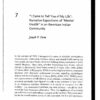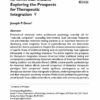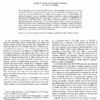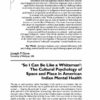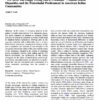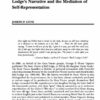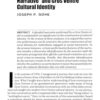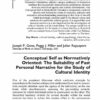Case Study
PDF copies of the articles, chapters, and reports listed below may be downloaded by clicking on my linked name within the citation (* indicates student/trainee co-authors).
Gone, J. P. (2011). “I came to tell you of my life”: Narrative expositions of “mental health” in an American Indian community. In M. Aber, K. Maton, & E. Seidman (Eds.), Empowering settings and voices for social change (pp. 134-154). New York: Oxford University Press.
Gone, J. P. (2010). Psychotherapy and traditional healing for American Indians: Exploring the prospects for therapeutic integration. The Counseling Psychologist, 38(2), 166-235.
Gone, J. P., & *Alcantara, C. (2010). The Ethnographically Contextualized Case Study Method: Exploring ambitious achievement in an American Indian community. Cultural Diversity & Ethnic Minority Psychology, 16(2), 159-168.
Gone, J. P. (2008). “So I can be like a Whiteman”: The cultural psychology of space and place in American Indian mental health. Culture & Psychology, 14(3), 369-399.
Gone, J. P. (2007). “We never was happy living like a Whiteman”: Mental health disparities and the postcolonial predicament in American Indian communities. American Journal of Community Psychology, 40(3-4), 290-300.
Gone, J. P. (2006). “As if reviewing his life”: Bull Lodge’s narrative and the mediation of self-representation. American Indian Culture and Research Journal, 30(1), 67-86.
Gone, J.P. (1999). “We were through as Keepers of it”: The “Missing Pipe Narrative” and Gros Ventre cultural identity. Ethos, 27(4), 415-440. [Abstracted as “Discussions” box in undergraduate textbook by M. Womack (2001), Being human: An introduction to cultural anthropology (2nd ed.), Prentice-Hall, pp. 246-248]
Gone, J. P., Miller, P. J., & Rappaport, J. (1999). Conceptual self as normatively oriented: The suitability of past personal narrative for the study of cultural identity. Culture & Psychology, 5(4), 371-398.
